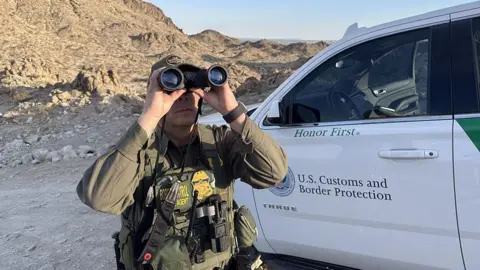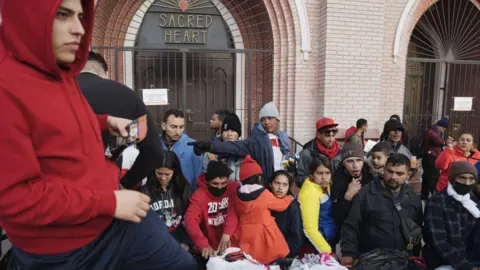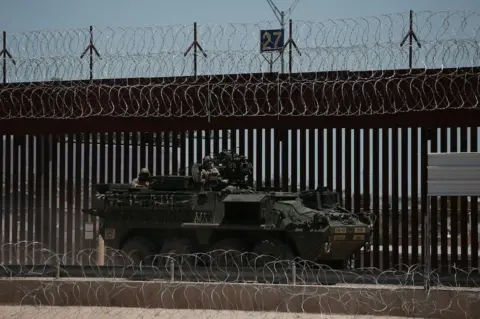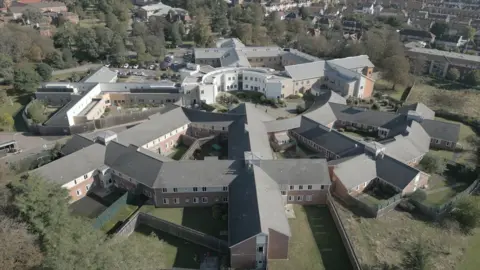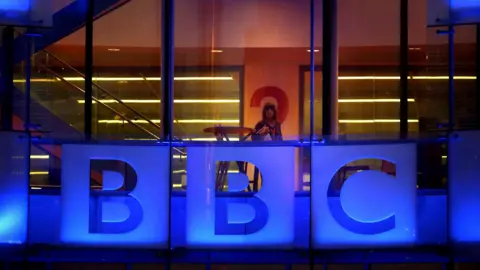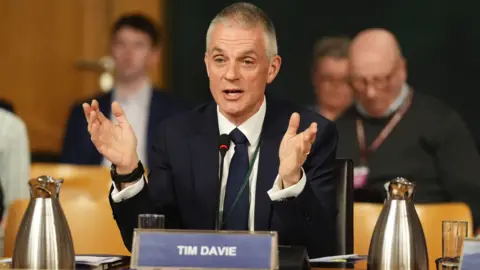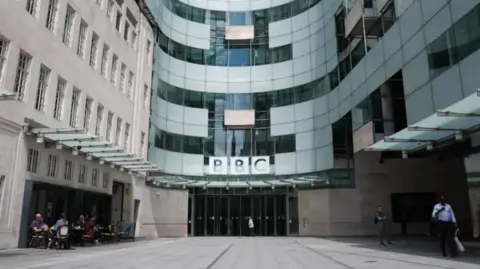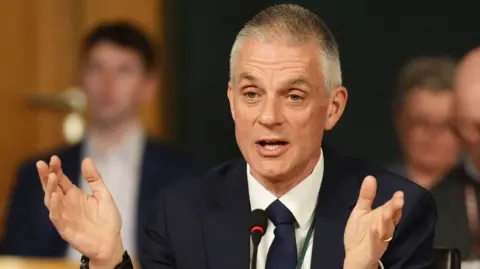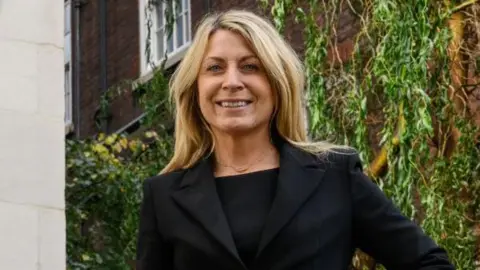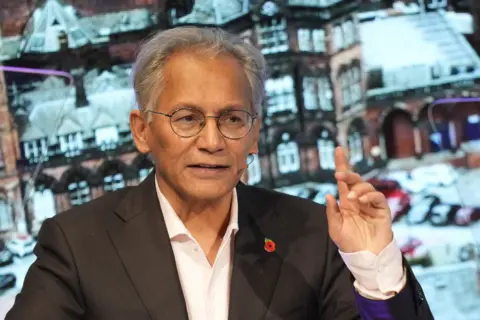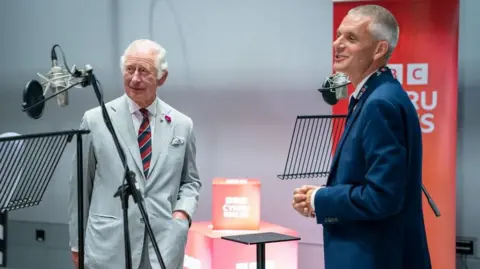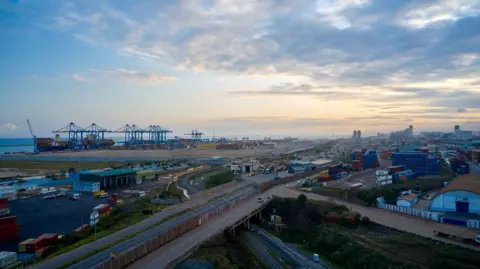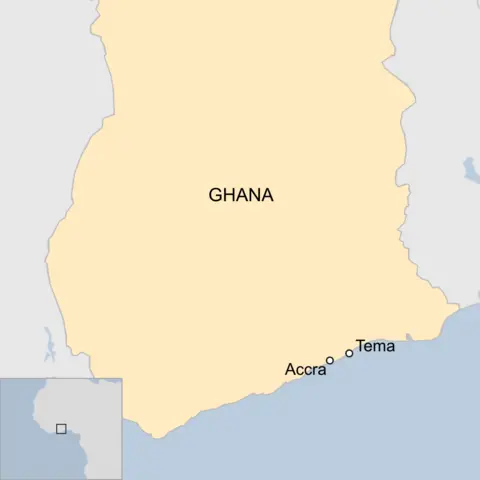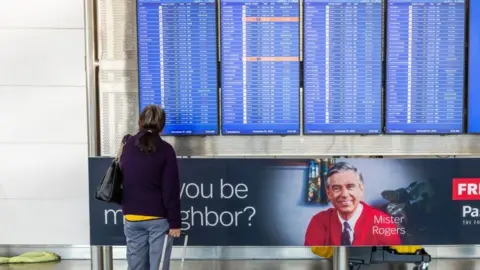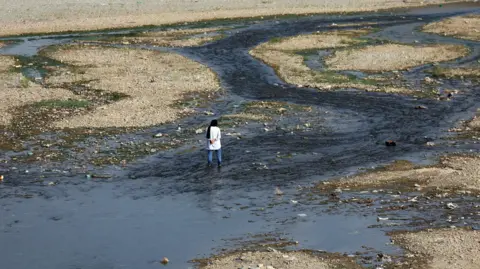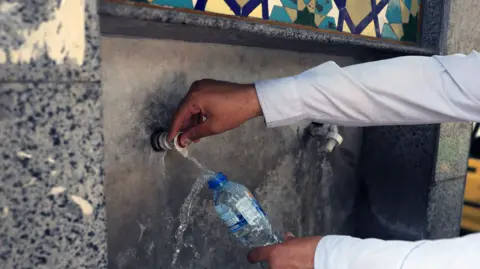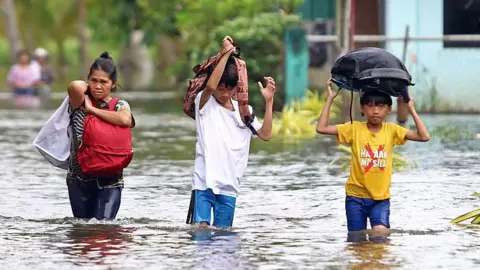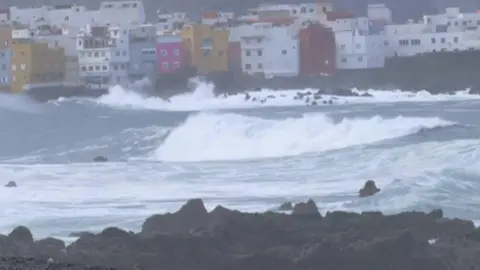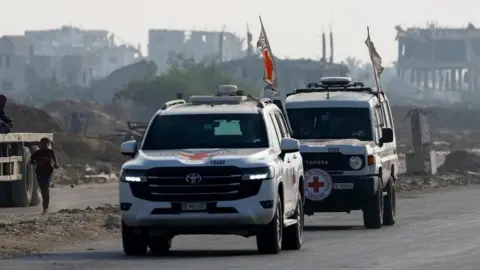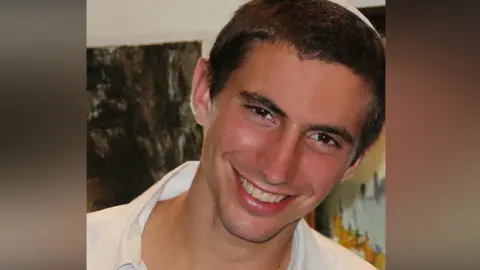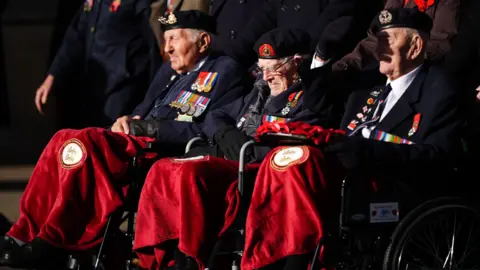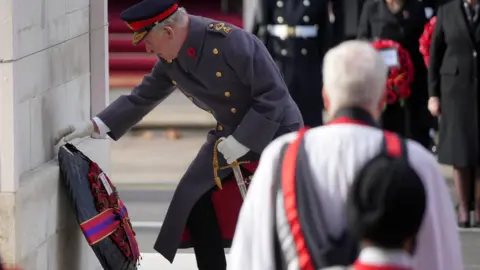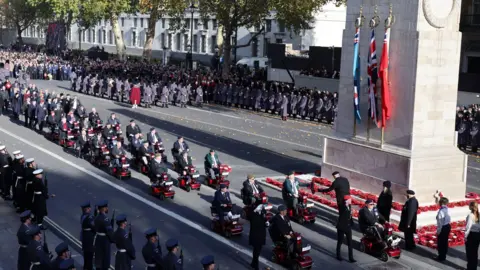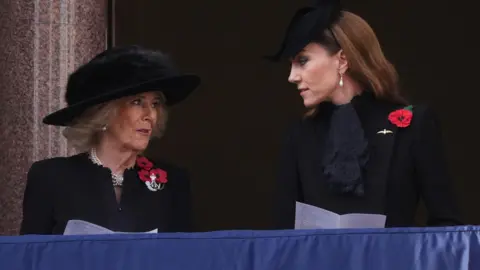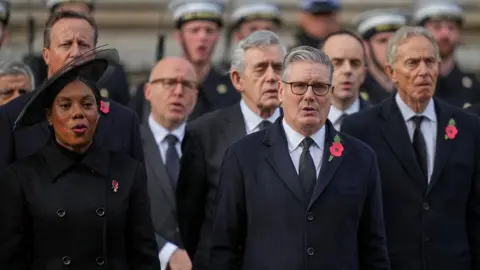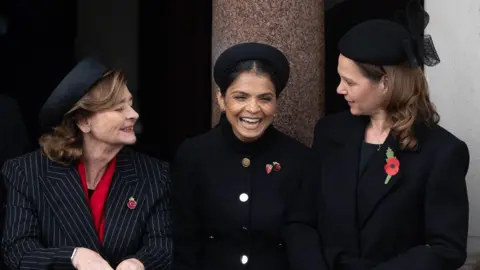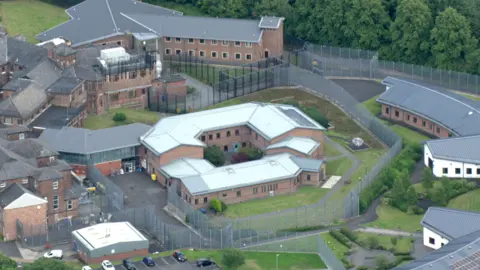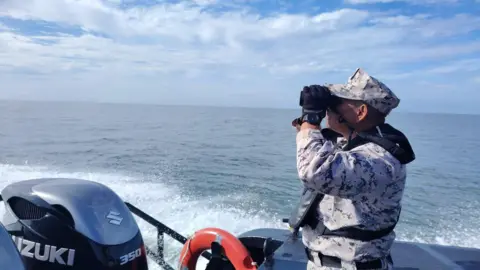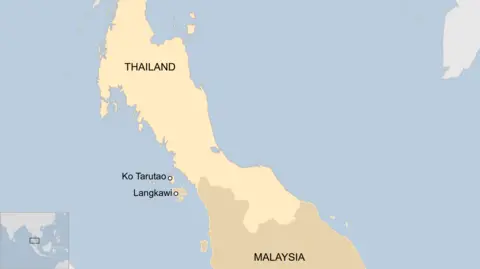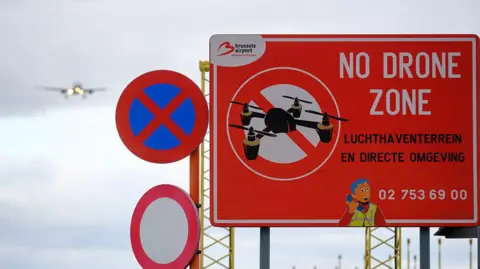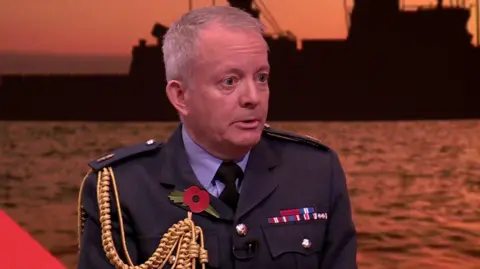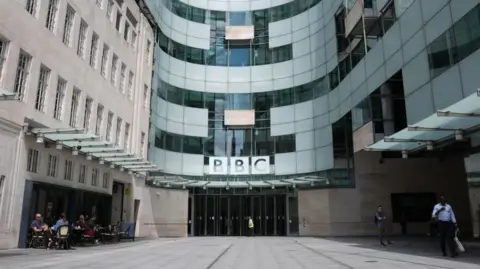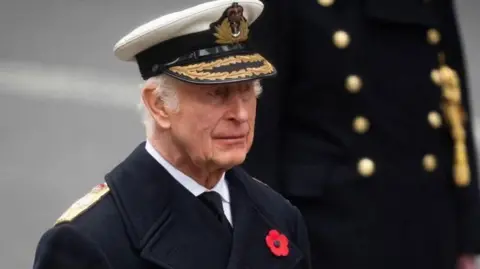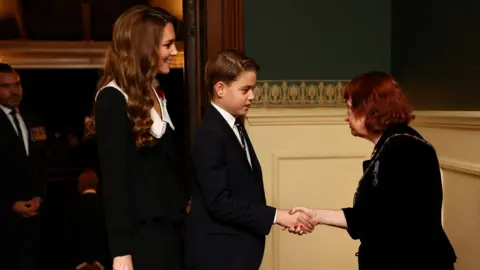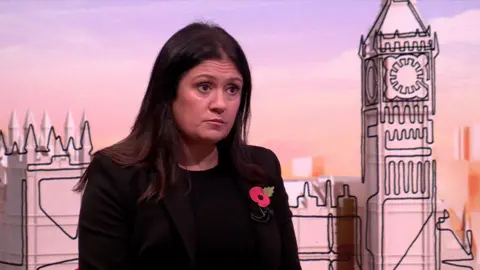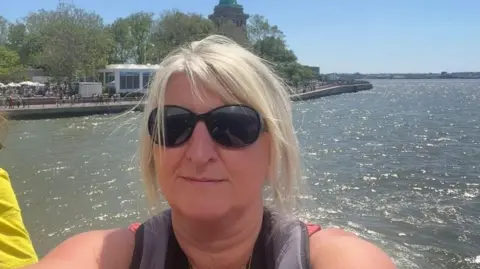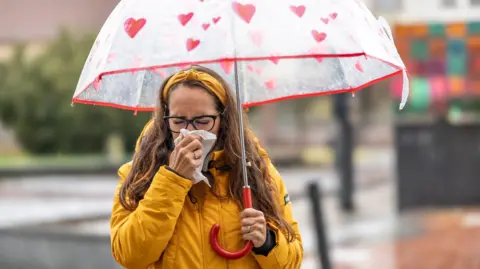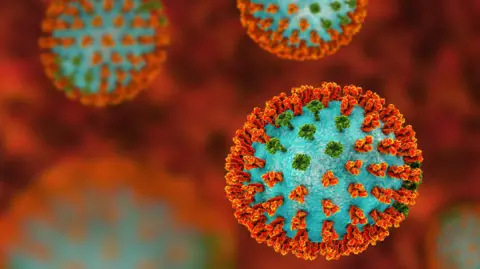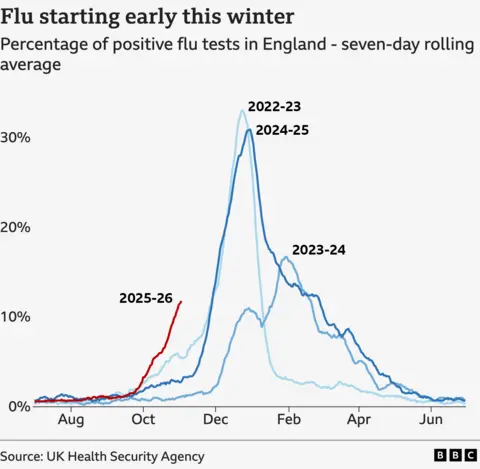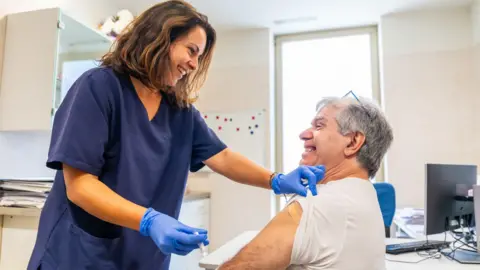Do UN climate talks have a point any more?

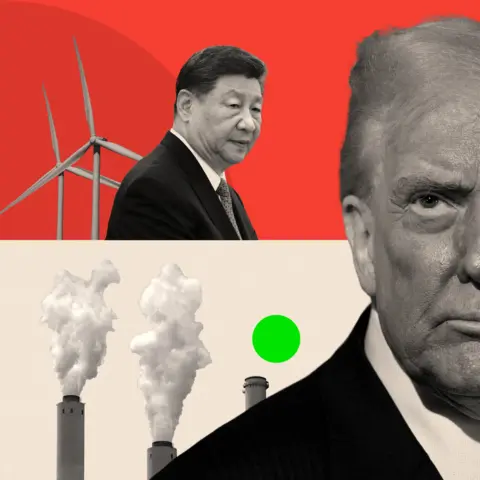 BBC
BBCThere is a photograph, taken ten years ago in Paris, that today seems like something of a relic.
In it, dozens of men and women line up in dark suits, in front of an enormous sign that reads COP21 Paris.
Right in the middle the UK's then-Prime Minister, David Cameron, grins widely, as he stands beside the future King Charles III, just in front of China’s Xi Jinping. Far off to the right is the then US President Barack Obama, deep in conversation with someone who is cut off from the frame - because there were so many leaders lining up that day that it was difficult for the photographer to capture them all at once.

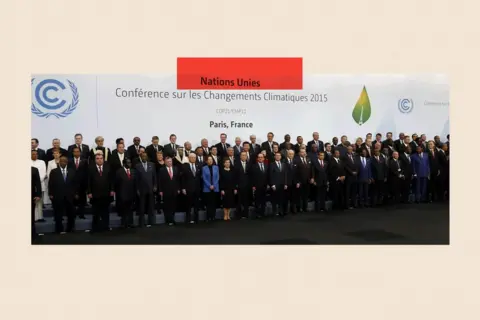 AFP via Getty Images
AFP via Getty ImagesWhat a far cry from the family photograph taken on Thursday with this year's line-up at the COP30 summit in Brazil, with just 30 leaders in the picture.
Xi and Modi were no-shows, along with the leaders of around 160 other countries. And notably absent was the US President Donald Trump.
In fact, the Trump administration has exited the process entirely and has said it will not send any high-level officials this year.
Which raises the question, why have a two-week-long multinational gathering at all if so many leaders aren’t there?
Christiana Figueres, the former head of the UN's climate process under whose leadership the Paris Agreement was struck, said during last year's gathering that the COP process was "not fit for purpose."
"The golden era for multilateral diplomacy is over," agrees Joss Garman, a former climate activist who now heads a new think tank called Loom.

 Anadolu via Getty Images
Anadolu via Getty Images"Climate politics is now more than ever about who captures and controls the economic benefits of new energy industries," he tells me.
So, with carbon dioxide emissions still rising even after 29 of these meetings - which are, after all, aimed at bringing them down - will more COPs make any difference?
Trump and the climate 'con job'
On his first day back in office, Trump used his trademark marker pen to withdraw the US from the Paris Agreement, the 2015 UN treaty under which nations agreed to work together to try to keep global warming below 1.5°C.
"This 'climate change' - it's the greatest con job ever perpetrated on the world," he told the UN General Assembly in September. "If you don't get away from this green scam, your country is going to fail."
He has rolled back restrictions on oil, gas, and coal, signed billions of dollars of tax breaks for fossil fuel firms, and opened up federal lands for extraction.
Plus Trump and his team have called on governments around the world to abandon their "pathetic" renewable energy programmes and buy US oil and gas - in some cases with the risk of punitive tariffs if they don't. Japan and South Korea as well as Europe have agreed to buy tens of billions of US hydrocarbons.
The objective is clear: Trump says he wants to make the US the "number one energy superpower in the world".
Meanwhile, he has set about dismantling his predecessor Joe Biden's clean energy agenda.

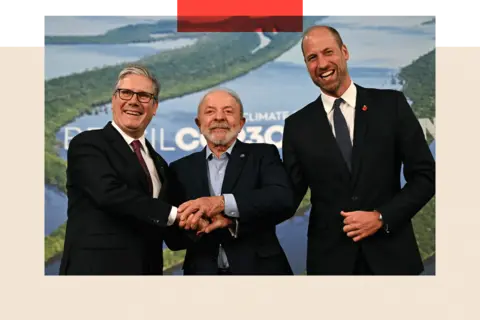 WPA Pool/Getty Images
WPA Pool/Getty ImagesSubsidies and tax breaks for wind and solar have been slashed, permits withdrawn, projects cancelled. Research funding has been cut too.
"Wind power in the United States has been subsidised for 33 years - isn't that enough?" US Energy Secretary Chris Wright said when I asked him to explain the administration's policy when we met in September. "You've got to be able to walk on your own after 25 to 30 years of subsidies."
John Podesta, a senior adviser on climate to both Obama and Biden, sees it differently. "The United States is taking a wrecking ball to clean energy," he argues.
“They're trying to take us back not to the 20th Century, but the 19th."

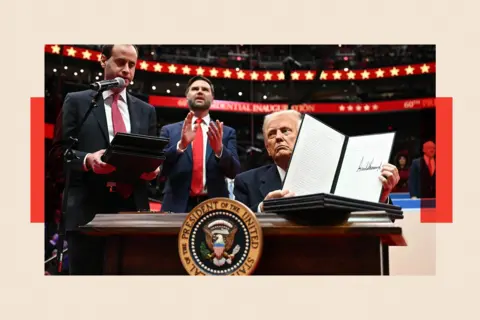 AFP via Getty Images
AFP via Getty ImagesLast month, a landmark deal that would have cut global shipping emissions was abandoned after the US, along with Saudi Arabia, succeeded in ending the talks.
Many supporters of the COP talks are concerned. What happens if the US path leads to other countries dialling down their commitments?
Anna Aberg, a Research Fellow in Chatham House's Environment and Society Centre, describes COP as "taking place in a really difficult political context" given Trump's position.
"I think it's more important than ever that this COP sends some kind of signal to the world that there are still governments and businesses and institutions that are acting on climate change.”
It’s too late to win at table tennis
Trump's strategy puts the US on a collision course with China, which has also been working for decades to dominate the world's energy supplies - but through clean technology.
In 2023, clean technologies drove roughly 40% of China's economic growth, according to the climate website Carbon Brief. After a slight slowdown last year, renewables accounted for a quarter of all new growth and now make up more than 10% of the entire economy.
And, like Trump's America, China is engaging internationally well beyond participation in COP - it is taking its entire energy model global.

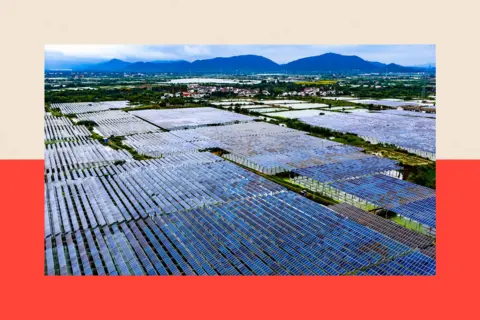 NurPhoto via Getty Images
NurPhoto via Getty ImagesThe split has transformed the climate debate. It is now one that pits the world's two superpowers against each other for control of the most essential industry on Earth.
And it leaves the UK and Europe - as well as major emerging powers like India, Indonesia, Turkey, and Brazil - caught in the middle.
Speaking at this year‘s conference, a source in government at a major developed country said: “Of all the things they're most terrified of, the biggest is being seen to criticise Trump.”
The President of the European Commission, Ursula von der Leyen, warned last month that Europe must not repeat what she termed the mistakes of the past and lose another strategic industry to China.
She called the loss of Europe's solar manufacturing base to cheaper Chinese rivals "a cautionary tale we must not forget".

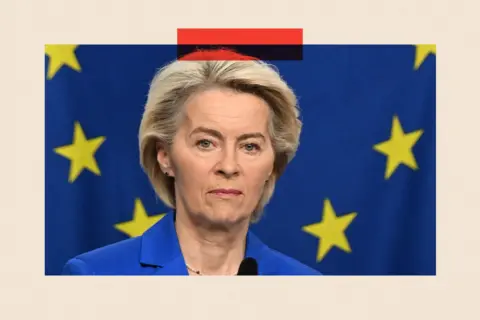 AFP via Getty Images
AFP via Getty ImagesThe European Commission has forecasted that the market for renewables and other clean energy sources will grow from €600bn (£528bn) to €2 trillion (£1.74tn) within a decade and wants Europe to capture at least 15% of that.
But that ambition may come too late.
"China is already the world's clean-tech superpower," says Li Shuo, director of the China Climate Hub at the Asia Policy Institute. Its dominance in solar, wind, EVs, and advanced battery technologies, he says, is now "virtually unassailable”.
He likens it to trying to beat the Chinese national team at table tennis: "If you want to surpass China, you had to get your act together 25 years ago. If you want to do it now, you have no hope."

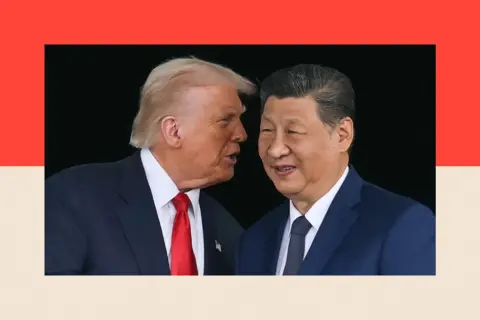 AFP via Getty Images
AFP via Getty ImagesChina produces over 80% of the world's solar panels, a similar share of advanced batteries, 70% of EVs, and more than 60% of wind turbines - all at phenomenally low prices.
The EU's recent move to raise tariffs on Chinese EVs reflects the scale of the dilemma. Open the market and Europe's car industry could collapse; close it and green targets may not be met.
Restricting Chinese access to these markets may slow emissions reductions, says Joss Garman, but he argues, "If we ignore questions about economic security, jobs, national security, that risks undermining public and political support for the entire climate effort."
COP: New purpose or pointless?
Now, with these shifts in direction of global politics and priorities, Anna Aberg says she expects COP to become an annual forum for "holding to account" countries and other organisations, something she believes remains an "important role”.
The gathering in Brazil follows the acknowledgement by UN Secretary-General António Guterres that the 1.5°C target set in Paris will be breached - this, he has said, represents "deadly negligence" on the part of the world community.
Last year was the hottest ever recorded, and 60 leading climate scientists said in June that the Earth could breach 1.5°C in as little as three years at current levels of carbon dioxide emissions. Yet more people are questioning the need for an annual gathering.
"I think we need one big COP every five years. And between that, I'm not sure what COP is for," says Michael Liebreich, founder of energy consultancy Bloomberg New Energy Finance and host of a green energy podcast, Cleaning Up.
"You can't just expect politicians to go and make more and more commitments. You need time for industries to develop and for things to happen. You need the real economy to catch up."

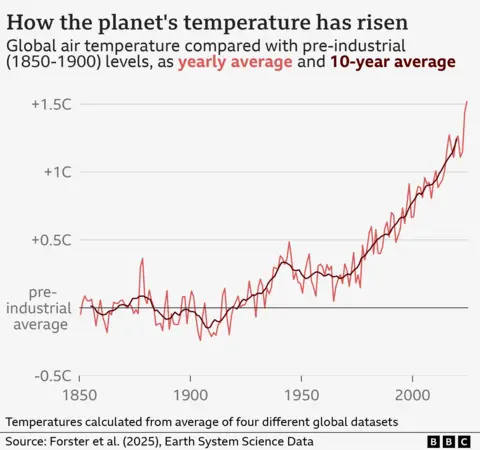
He believes it would be much more productive for the discussions to happen in smaller meetings focused on removing barriers to clean energy.
But he also believes that some issues, like implementation, need to be discussed in places he deems more relevant - like on Wall Street "where people can actually fund stuff” - as opposed to on the edge of the Brazilian rainforest.
Even so, this will be important negotiations at this year's COP. Among other things, it aims to get an agreement for a multi-billion-dollar fund to support the world's rainforests like the Amazon and the Congo Basin.
Michael Jacobs, who advised Gordon Brown on climate policy and is now a politics professor at Sheffield University, believes that continued collective support for the process is crucial.
"It's a big political message, because Donald Trump is trying to undermine the collective process, but it's also a message to businesses that they should continue to invest in decarbonisation because governments will continue to enact climate policies."

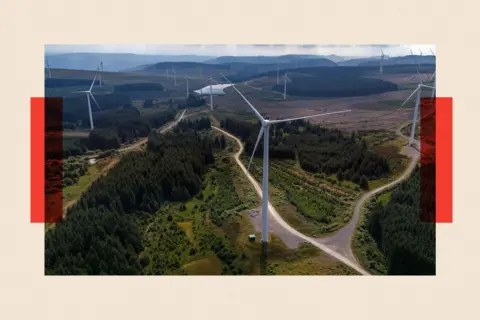 Getty Images
Getty ImagesThe UK's Energy Secretary, Ed Miliband believes these meetings have delivered real progress by getting countries to engage with tackling climate change and enact policies that have made the renewable revolution possible.
"It's dry, it's complicated, it's anguished, it's tiring,” he says - “and it's absolutely necessary”.
Many now do, however, accept there is a strong argument for these international gatherings to be scaled down.
Ultimately, however, the real choice underlying it, for so many nations in attendance, simply comes down to the extent to which they align with a China-led clean energy revolution - or double down on the fossil fuels–first agenda.
Which is why many observers say the process of decarbonisation is going to be less about the multi-country commitments of COPs past, and far more about big-money deals between individual countries as we look ahead to this year’s summit - and how COPs may well play out in the future.
Top picture credit: Getty Images


BBC InDepth is the home on the website and app for the best analysis, with fresh perspectives that challenge assumptions and deep reporting on the biggest issues of the day. You can now sign up for notifications that will alert you whenever an InDepth story is published - click here to find out how.
